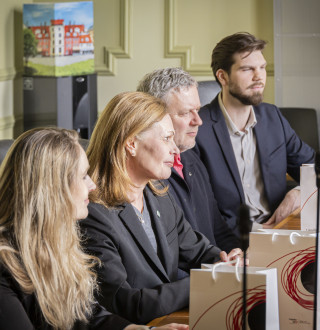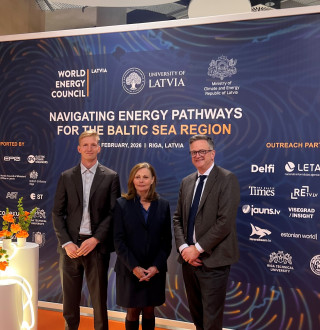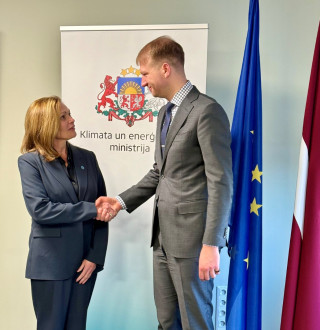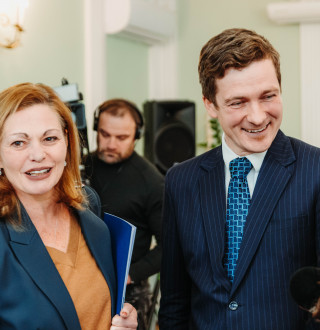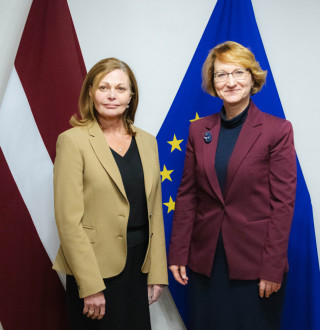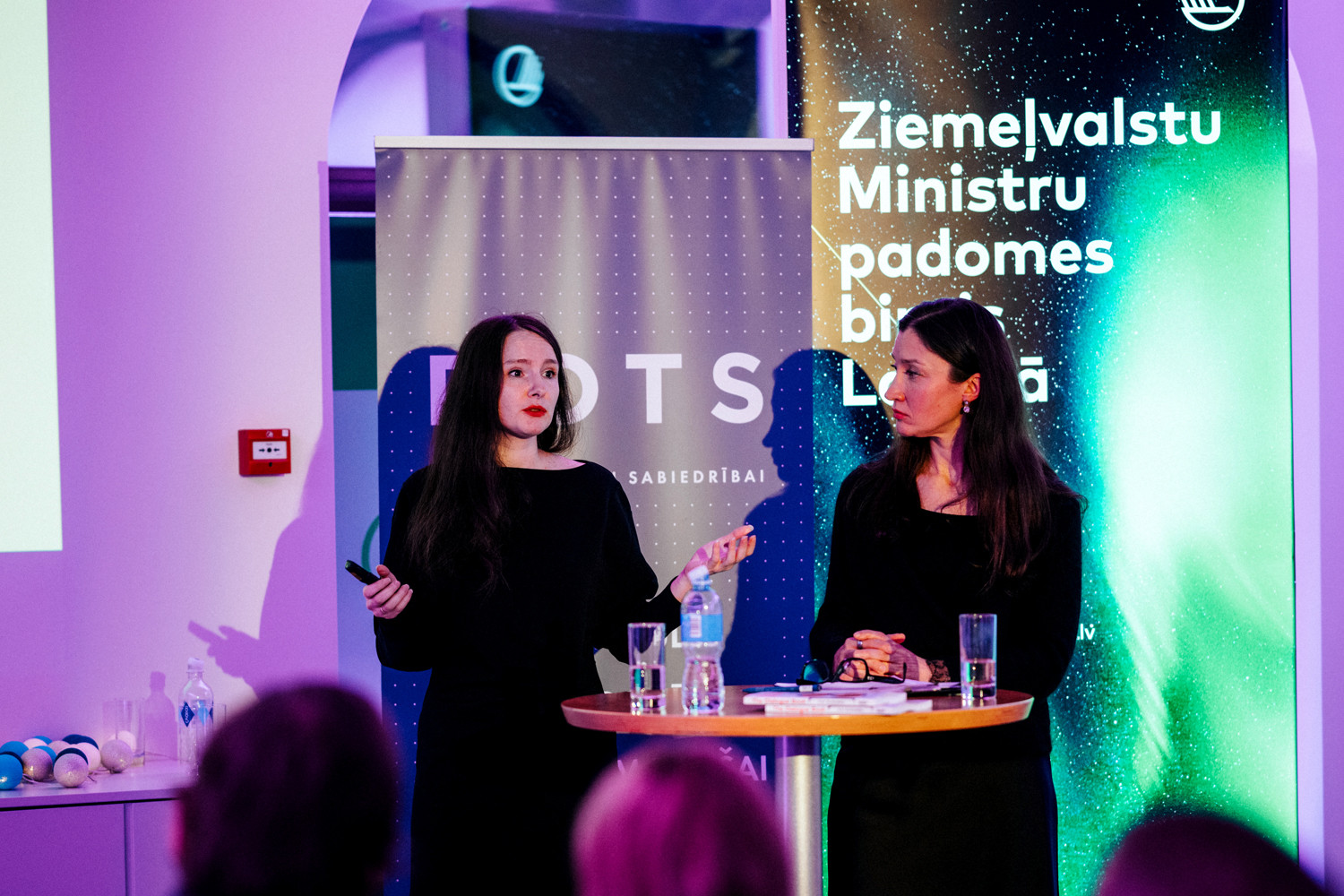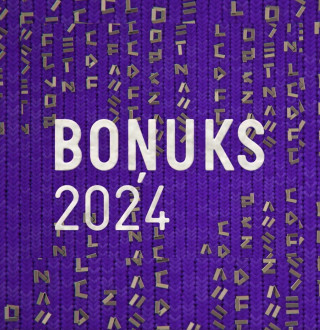On 27 February, the Dialogue Movement, founded by the DOTS Foundation for an Open Society, was launched with a festive event at the Nordic Council of Ministers' Office in Latvia. The Dialogue Movement is a long-term initiative promoting a culture of dialogue and giving tools for holding respectful dialogue also on difficult and complex issues. The idea of the initiative stems from the Dialogue Circles – a method for holding a guided conversation developed and widely used in Finland. It has been gradually introduced in Latvia building a dialogue between the public sector and the citizens.
Opening the event, Ieva Morica, Executive Director of the DOTS Foundation and founder of the LAMPA Festival, introduced the Dialogue Movement as a continuation of the LAMPA Festival launched by the Foundation ten years ago. This initiative is intended to promote the culture of dialogue throughout the year, instead of once per year occurrence. The Movement is not intended to reach consensus on every matter, but to learn to listen to others, to bridge divisions in society and to build a common understanding of important issues.
" A society that is able to have an open dialogue is stronger, more resilient and safer. " Dialogue enables us to listen and to understand – even when we disagree. Dialogue is a skill that helps to resolve conflicts, build trust and strengthen a sense of belonging. Our goal is to build a society where dialogue becomes the norm – across workplaces, politics, schools, media, families, and all public spaces.”
– Ieva Morica
Stefan Eriksson, Director of the Nordic Council of Ministers' Office in Latvia, spoke about the importance of dialogue and his experience in the Nordic countries, while philosopher and co-author of the dialogue method Kaj Alhanen shared his experience of how structured dialogue in Finland helps to reduce polarization and build trust. In Finland, the Dialogue Circles or the Timeout method, as its local name, is widely used in municipalities, public institutions and organizations giving an opportunity for people with different backgrounds and views to talk and build a common understanding on any topic. It is used both on socially sensitive topics such as migration and climate issues and as a tool in political decision-making processes.
The DOTS Foundation has been working with this method in Latvia for three years, organizing Dialogue Circles and adapting the Timeout principles to the needs of local society. This method of discussion helps to maintain the essential ability of people to learn from one another and to foster a better understanding of the various topics under discussion, of other people and of themselves. Team of the Dialogue Movement will provide public tools to help any interested individual to learn, practice and strengthen their ability to lead a structured dialogue on all sorts of topics.
At the event, two participants – Edmunds Apsalons, Ombudsman for the Electronic Media, and Arita Featherstone, executive coach – joined for a discussion on the topic of the current dialogue culture in Latvia. They agreed that the ability to converse goes beyond an individual person – it is a reflection of society. Lack of motivation for public administrations, businesses, journalists and citizens to engage in a dialogue leads to decrease of trust in society, in the longer period potentially hampering the decision-making process.
The dialogue movement was launched at a time of rapid change, divisions and polarization. Political populism and misinformation further widen the divide, giving a false impression that we have no common ground on which to build a shared future. At the same time, people feel increasingly isolated, and the chance to find common ground even within families and work teams seems to be fading away. In these circumstances, dialogue is more than just a nice idea – it is a much needed tool for connecting people and societies.
In her closing remarks, Ieva Morica called on the participants to join the Dialogue Movement and reminded that democracy is not a given – it is a work in progress with the culture of respectful dialogue as its foundation. "If we want to live in a society where people truly listen to one another and solutions emerge even in the most challenging situations, we must start by talking . It is a choice – let divisions deepen, or we find ways to bridge them .”
The original information in Latvian was prepared by the DOTS Foundation.
Photos: Roberts Eleksis
